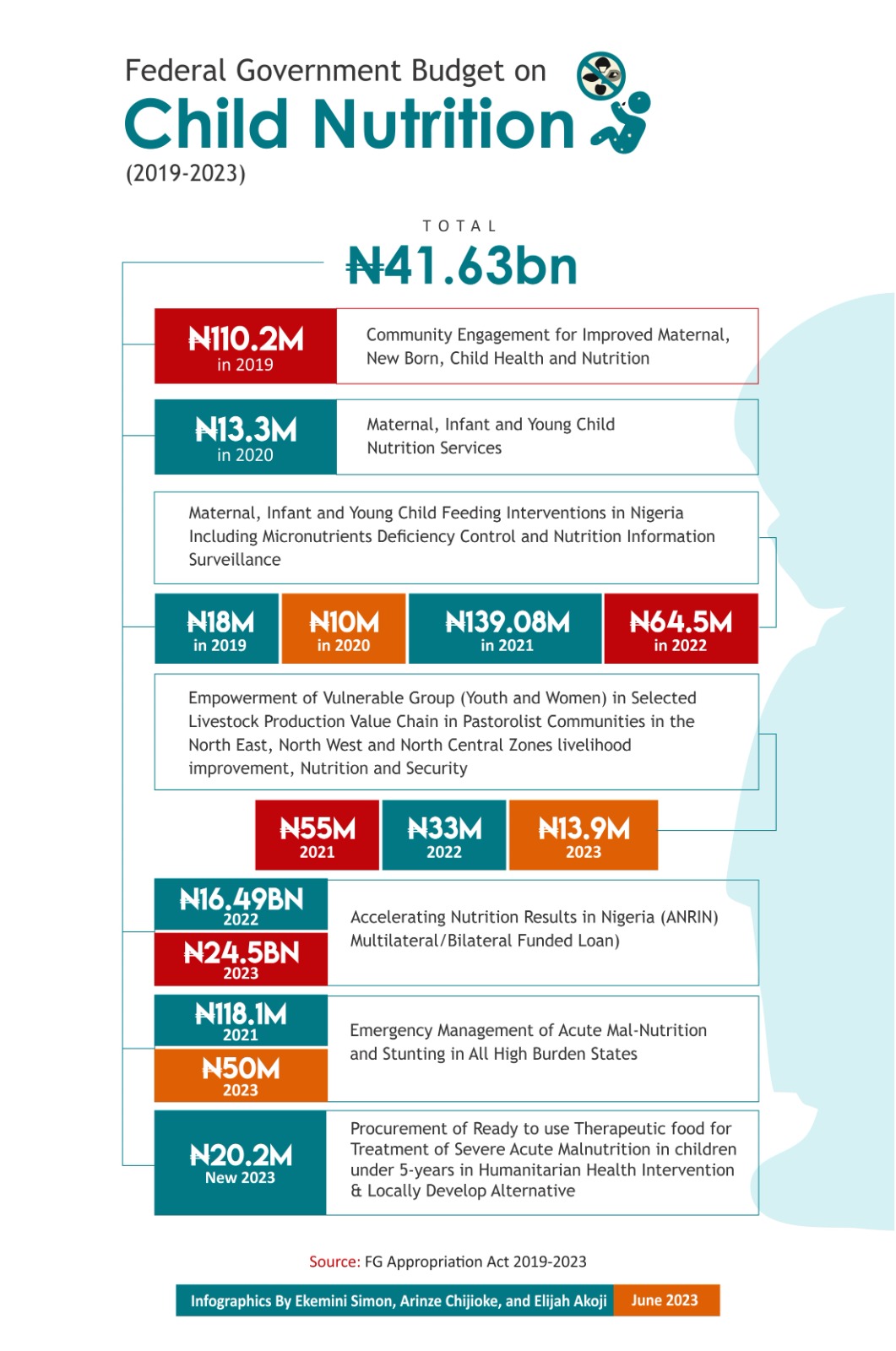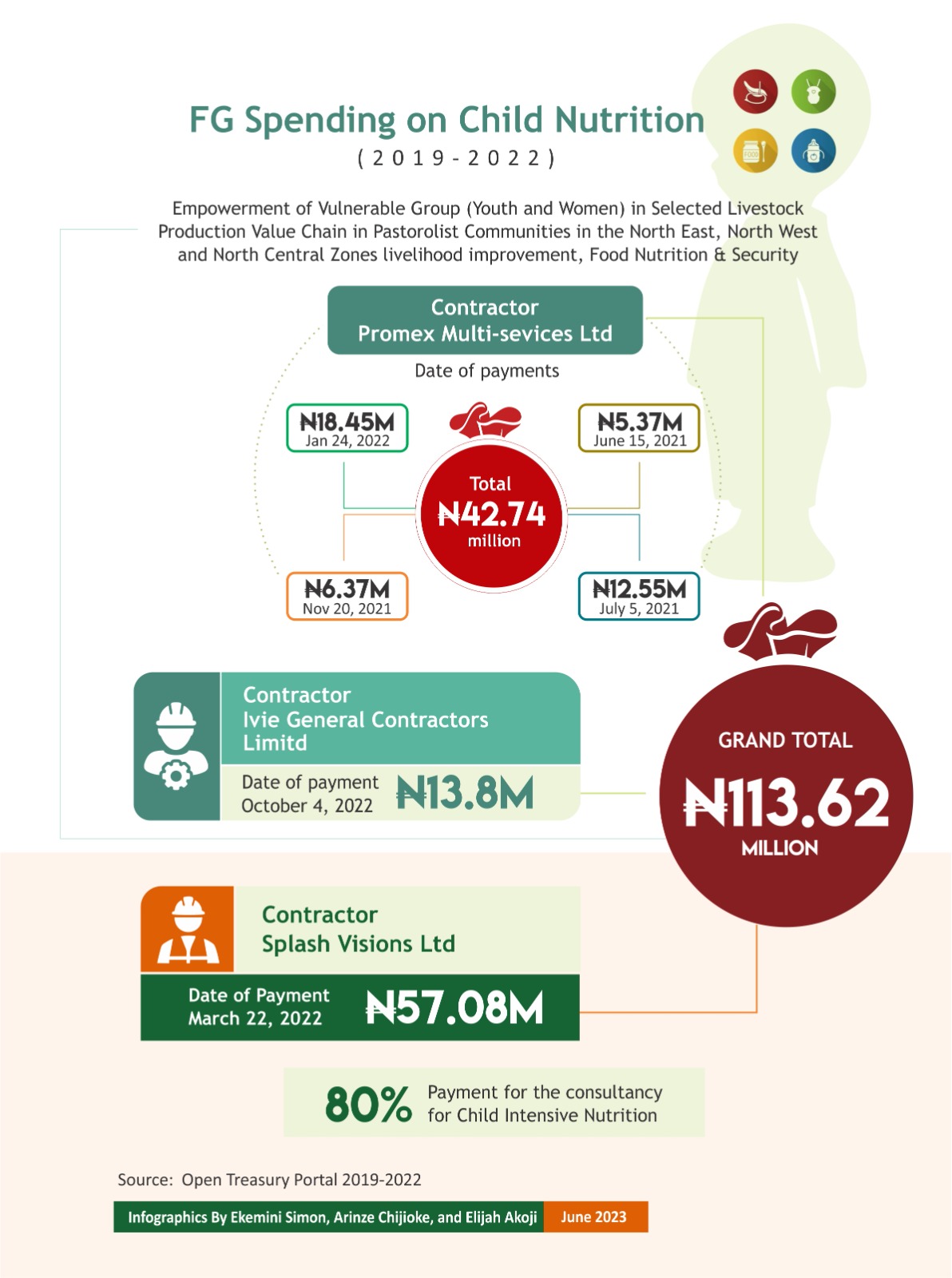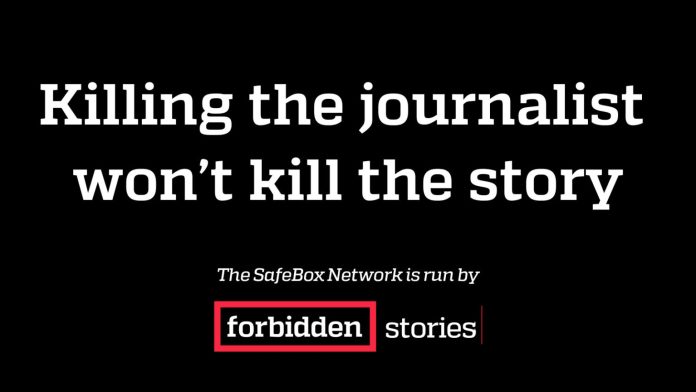Part III: How Government Funding Can Turnaround Prevalence of Malnourished Children in Nigeria
By: Arinze Chijioke, Elijah Akoji and Ekemini Simon
In the final of this three-part series, Arinze Chijioke, Elijah Akoji and Ekemini Simon look at how State and Federal government-prioritized spending on Child Nutrition can turn around the sad tales of child Malnutrition in Northern Nigeria and thus contribute to helping Nigeria achieve Sustainable Development Goal 3 of Good Health and Well-being.
The United Nations Children Emergency Fund, UNICEF dietary diversity project aimed at addressing infant malnutrition in select states in Northern Nigeria came to an end in 2021 even as the United Nations said that US$396 millionis urgently needed to prevent a widespread hunger and malnutrition crisis and scale up humanitarian action in Yobe, Borno and Adamawa states.
Experts opine that if the prevalence of Malnourished Children must be addressed in Yobe and Kano States, the government must not allow it in the hands of international partners alone but must prioritise child nutrition funding.
“For Yobe State, the key reason for the prevalence of Malnourished Children is insurgency which results in the massive displacement of people and their source of livelihood,” said Edem Edem, the National Coordinator and Founder of Green Concern for Development (GREENCODE), a Non-Governmental Organisation that works on humanitarian responses, especially in Northern Nigeria. “Even in Kano State, the government must not allow issues of child nutrition in the hands of international partners alone. There is a need for prioritized funding,”.
Edem noted that most projects of international partners are time bound hence their effort to address the challenge of child malnutrition may be thwarted if the government fails to follow through with adequate funding.
“Analysis of budgets by these States and the Federal Government shows that impressive budgetary provisions are being made for Child Nutrition, however, there is no adequate release of funds needed to enhance the support international partners give which can turn around the prevalence of child malnutrition in Nigeria”.
Analysis of funding of child nutrition by the government of the two mentioned states and the federal government reveals effort yet gaps that must be improved upon.
Yobe State Zero Funding on Child Nutrition
Analysis of policy documents, budget and audited financial statements of Yobe State revealed that the State has only made little effort to address the nutritional concerns of children in the State.
The State currently does not have a policy on food and nutrition. Besides, its budgetary plans only end in the books. For instance, analysis of the approved budget for 2019 through 2023 reveals that it was only in 2020 that the State made budgetary provisions for Child Nutrition.
The government provided “Foodstuff/catering materials supplies for Nutrition for under 5 Children/ Lactating mothers at N55m. Yet, checks into the audited financial statements for the fiscal year revealed that the money was not released
In subsequent years in 2022 and 2023, Yobe State’s budget that came close to the need was “Grants to Communities/ Vulnerable/Private – Support for Nutrition Activities. 2022 was N80m while N365.3m was appropriated in 2023. The financial statements for these fiscal years are yet to be published thus unknown whether funds were disbursed for the programme.
Analysis of State government spending to address the challenge of drought which could have checked the obstacle experienced by the UNICEF home-gardening project reveals where the government needs to improve.
Although the Yobe State Government budgeted N443.2m in 2021 and N540m in 2022 for a project tagged “Boreholes and other water facilities for irrigation activities (Climate Change) Lava Irrigation scheme”, checks to the financial statements of the State show that no amount was ever released. The state however spent N108.3m for other water projects in 2020. Other years from 2019 through 2022 had no releases.
Kano Impressive Plan but Zero Funding
The government of Kano State over the years has made splendid plans to address the problem of child nutrition, but most of the government contribution is on paper.
First, in April 2016, the State government established the Kano State High-Level Committee on Food and Nutrition chaired by the Secretary to the State Government.

As a result of the UNICEF dietary diversity project, there was a buy-in by the State Government. This led to the development of the Kano State Multisectoral Strategic Plan of Action for Food and Nutrition (KN-MSPAN) 2019- 2023.
According to the immediate past Governor of Kano State, Dr Abdullahi Umar Ganduje, in his foreword of the Plan, the KN-MSPAN is designed to address the problem of malnutrition, which has been most devastating among young children, pregnant women and lactating mothers.
Beyond the policy, nutrition has been prioritized in the budget of Kano State between 2019 and 2022. However, only N64 million was appropriated specifically for child nutrition and this was in 2021 and 2022.
The few budgetary appropriations on child nutrition are; Active case findings of Severe Acute Malnutrition (SAM) and provision of treatment of which N2m each was budgeted for 2021 and 2022.
There was also the ” Provision and Distribution of Supplementary Food to Children with Moderate Acute Malnutrition (MAM). N20m was budgeted in 2021 and N40m in 2022.
Yet, checks into the audited financial statements of KanoState show that funds were not released for the projects.
FG spends 0.27 Percent of Budgeted Funds on Child Nutrition
The federal government in the last five years of 2019 through 2023 budgeted a total of N41.63bn for child nutrition through the Federal Ministry of Health and Federal Ministry of Agriculture and Rural Development, checks into the Appropriation Acts of the years under review have revealed.
Data obtained from the Open Treasury Portal, a Federal Government portal that provides public access to collated data on government spending at the federal level and for Ministries Departments and Agencies (MDAs) reveals that only one item received funding among the seven budgeted programmes.
The project, “Empowerment of Vulnerable Group (Youth and Women) in Selected Livestock Production Value Chain in Pastoralist Communities in the North-East, North-West North Central Zones livelihood improvement, Food Nutrition and Security” received N56.5m disbursement of funds for the project only in 2021 and 2022.
This project, supervised by the Nigerian Institute of Animal Science was reportedly executed by a General Merchant and Trading Company, Promex Multi-services Limited and
Besides the expenditure, although the federal government did not budget for Consultancy for Child Intensive Nutrition in 2022, the federal government through the National Social Investment Office made an 80% Payment of the Contract for the project to Splash Visions Limited in March 2022 at N57.08m.
The federal government spending on the two projects of Child nutrition amounts to N113.58m. This will imply that the federal government only released 0.27 per cent of the funds it budgeted for child nutrition within the period under review.
Experts’ View on UNICEF’s Nutritional Projects
A lecturer in the Department of Nutrition and Dietetics at Imo State Polytechnic, Owerri, Patrick Ogbonna has recommended solutions to some of the challenges experienced by the dietary diversity project in Kano State and the home-gardening project in Yobe State.
Ogbonna who is also the Assistant National General Secretary of the Nutrition Society of Nigeria recommends that the use of modern technology in food preservation and processing of dietary food is the key to wriggling out of the challenge of accessibility to water or drought.
He said ” Since inaccessibility to water sources and sometimes drought has been the key challenge to the two projects, what is needed is that these communities need to have modern methods of food preservation using modern technology. Now, we have the solar system. They need food storage facilities powered by solar. So, during their bumper season, they collect the recommended food and preserve it.
“Another is processing the products to a form that can last longer than the usual supply. Recently, we have micronutrient powder. They can be stored for a longer period of time than their natural fresh state.
“We can have what we call nutrients concentrate. These recommended foods can be processed and made concentrated and they now add them into the usual meal that the children consume.”

The Nutritionist who noted that it would be foolhardy to expect support from international partners to solve the menace of child nutrition called on the government to own initiatives geared at addressing child nutritional concerns and most importantly provide adequate funding against child malnutrition.
He said the government at all levels should provide credit facilities to the locals for the acquisition of some of the food processing machines which will help with preservation. Beyond that, he asked that the government in the area mostly affected provide solar storage facilities and also put mechanisms in place to ensure food that will address child nutritional concerns are prioritised.
What is more, Ogbonna stressed that the government must make a conscious effort to address the problem of insurgency in the Northern region of Nigeria noting that when people continue to be displaced, child malnutrition will continue to rise. He called on the government to improve its security on organisations that volunteer to help in the combat against child malnutrition.
This story was produced with the support of Nigeria Health Watch through the Solutions Journalism Network, a nonprofit organisation dedicated to rigorous and compelling reporting about responses to social problems.




